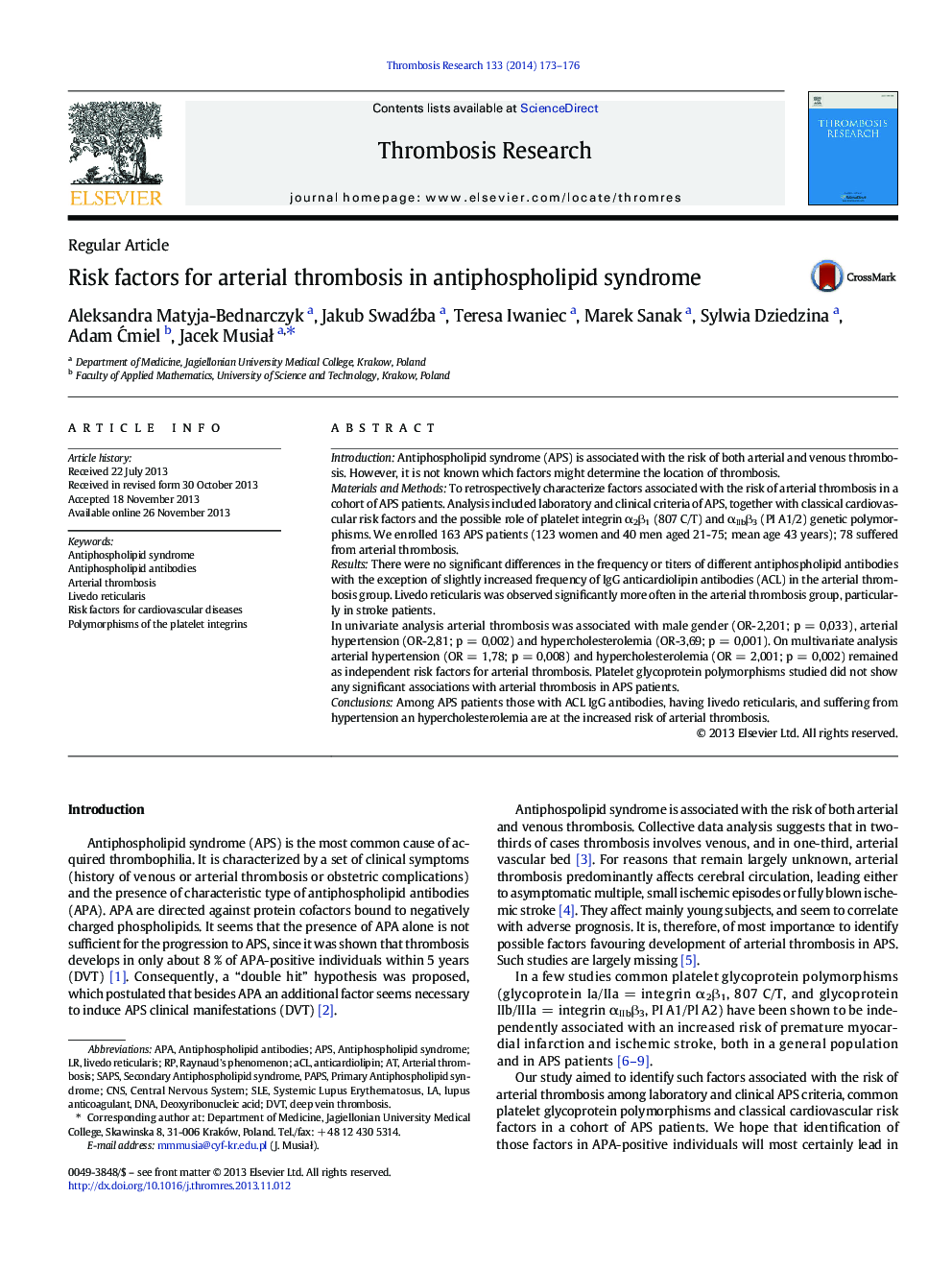| Article ID | Journal | Published Year | Pages | File Type |
|---|---|---|---|---|
| 6001486 | Thrombosis Research | 2014 | 4 Pages |
IntroductionAntiphospholipid syndrome (APS) is associated with the risk of both arterial and venous thrombosis. However, it is not known which factors might determine the location of thrombosis.Materials and MethodsTo retrospectively characterize factors associated with the risk of arterial thrombosis in a cohort of APS patients. Analysis included laboratory and clinical criteria of APS, together with classical cardiovascular risk factors and the possible role of platelet integrin α2β1 (807 C/T) and αIIbβ3 (PI A1/2) genetic polymorphisms. We enrolled 163 APS patients (123 women and 40 men aged 21-75; mean age 43 years); 78 suffered from arterial thrombosis.ResultsThere were no significant differences in the frequency or titers of different antiphospholipid antibodies with the exception of slightly increased frequency of IgG anticardiolipin antibodies (ACL) in the arterial thrombosis group. Livedo reticularis was observed significantly more often in the arterial thrombosis group, particularly in stroke patients.In univariate analysis arterial thrombosis was associated with male gender (OR-2,201; p = 0,033), arterial hypertension (OR-2,81; p = 0,002) and hypercholesterolemia (OR-3,69; p = 0,001). On multivariate analysis arterial hypertension (OR = 1,78; p = 0,008) and hypercholesterolemia (OR = 2,001; p = 0,002) remained as independent risk factors for arterial thrombosis. Platelet glycoprotein polymorphisms studied did not show any significant associations with arterial thrombosis in APS patients.ConclusionsAmong APS patients those with ACL IgG antibodies, having livedo reticularis, and suffering from hypertension an hypercholesterolemia are at the increased risk of arterial thrombosis.
